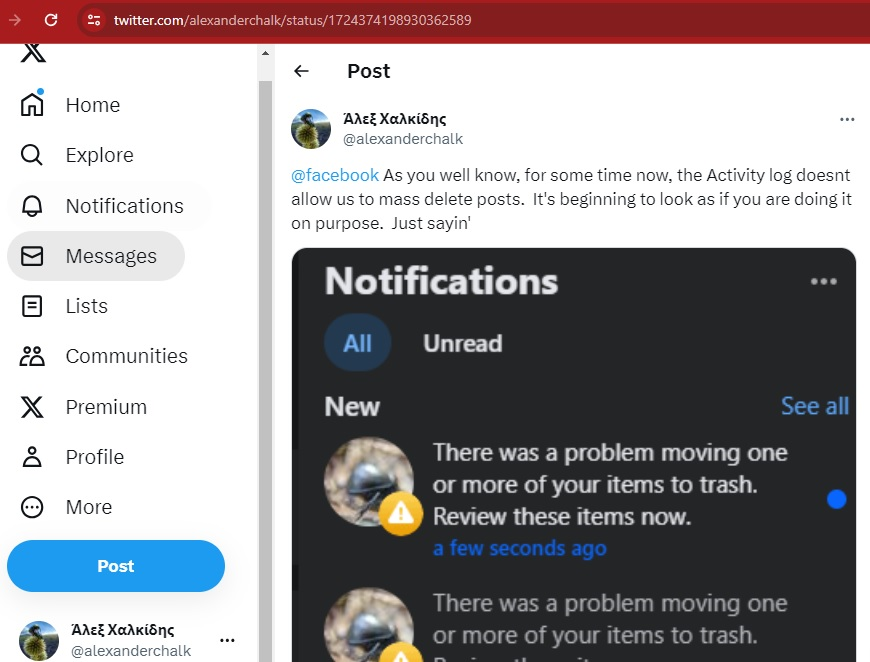I’m not even starting on the joke of the Metaverse and the billions wasted by Meta trying to convince us that they aren’t Facebook and evil personal information thieves. We don’t use Facebook to share pictures in my clan. Long time now. We use Google photos. For any trip there is a shared album. If someone says “how was it?” I share the link to it. Nobody else sees anything. Google can use them all they like, Google actually provides useful stuff in return. And this should be worrying Meta a lot because more and more of us are finding other ways to share on our own terms.
So do you use AI for marketing? Superb! AI agents will soon take over preparing social media posts. Maybe even other AI agents exploring social media, bringing back information, adjusting campaigns. Fantastic! Will they be as good as a good human? No, not at first. But most companies don’t use “good humans” anyway, most corporate posts are mediocre at best.
So the problem is that social media isn’t ready for this change.
Already the Facebook feed is almost useless. Between sponsored posts, ads and posts of people you don’t know that are probably also sponsored, there isn’t much of interest left. Now imagine how much worse this will get with AI agents flooding the feed. One way to try and handle it is like my kids do. They are extremely careful about connecting to anyone. Person or brand. So a curated contact list in an application that only allows for content from your contacts. That’s a good start. But it doesn’t leave much room for Meta to sell anything. And it is more than likely that they won’t do it on a Meta platform pretty soon.
It’s also the death knell for mediocre social media posts from companies promoting something. And that will include AI generated ones.
Good content is still king. Just in a different way. AI models are training on freely available information on the web. So get your website up to speed. Make sure it projects your expertise and goes in depth into your products or services. In a convoluted way it will still eventually bring customers to your door. But only if it is quality content with meaningful individuality. Anything else will be competing with the bot armies in a sea of crappy mediocrity, AI generated or not.
Companies are busy trying to get their vast swaths of data into a form that can be accessed by AI in order to milk some future advantage. So they can discover the secret winning patterns nobody noticed all these years. Well, while you are doing that, maybe also try and make sure you have enough original content which accurately describes what value you are adding where. Because every other AI is trying to figure you out in order to bring the “best” result to their users.
Those rushing to pronounce that “search is dead” haven’t really thought it through. Sure, we will run AI powered searches. And how do they learn? They LargeLanguageModel themselves silly, hoovering up data and trying to make sense of it. So if I ask “which is the best lightweight sleeping bag for hiking trips” they are scouring forums and websites and anything they can find. Well, they can’t find social media posts because Meta hides those. And when it comes to making sense and prioritising all this information the game hasn’t changed. A good product which has gained fans that talk about it a lot will still win. No matter who powers your search. It’s a long term game like it always was. And Zuckerberg is at heart a low level hacker in a hurry to make a quick buck like he always was. No innovation. No essential services for users. No trust in how he will milk our data. No real structure to all the information users have thrown on to his platforms all these years. No added value.
AI is not Meta’s friend right now. Because at the end of the day, really, what has Facebook ever done for us?
(My personal Facebook account got wrongly suspended a year ago. Meta never even responded to multiple requests about it.)


